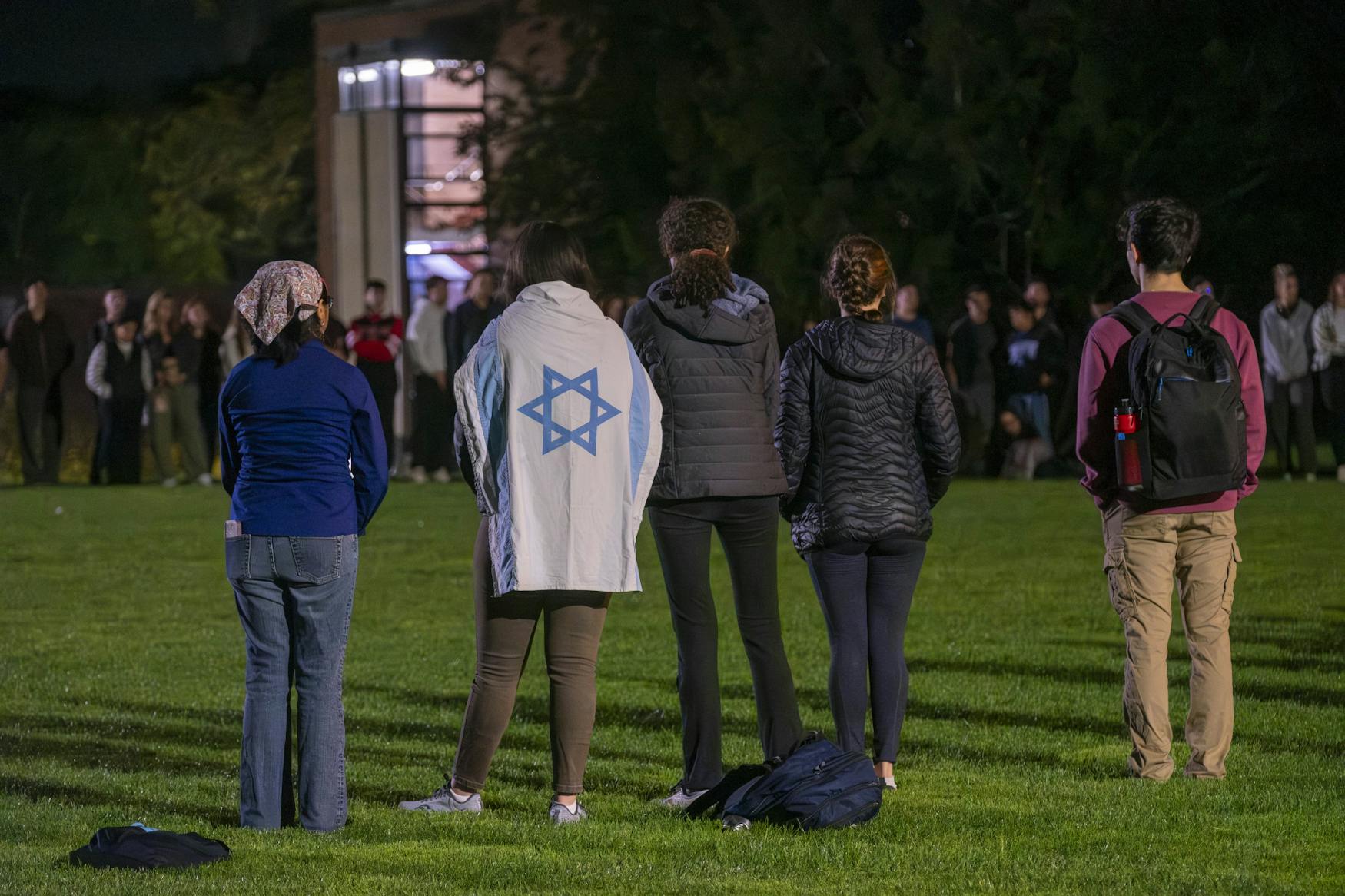When it comes to Israel, remaining partial is no longer an option
As a daughter of immigrants, attending a top American university was a lifelong dream. I longed for the chance to participate in what I imagined were the highest levels of intellectual discourse.
To me, America’s elite institutions of learning represented the embodiment of curiosity, the opportunity to strive for knowledge, and ultimately, a path to the kinds of influence that comes with such knowledge.
As passionate and high achieving students of my generation worked towards this goal, however, college campuses underwent a drastic transformation.
The campus became an environment of hyper-sensitivity, with free speech monitored for microaggressions and professors kicked out due to the slightest opposition to mainstream thought.
In fact, the Prevention, Advocacy and Resource Center at Brandeis, along with groups at Stanford and other elite universities, published a list of harmful language in 2021 which should be removed from campuses. This list included harmful phrases such as “master bedroom” and “you guys.”
Nevertheless, the growing atmosphere of this new progressivism proved insufficient in deterring students like me from pursuing their dream of attending a top American universities. But the events that followed Hamas’s attack on Israel on Saturday, Oct. 7th should be.
Merely hours after Hamas stormed the border between Israel and Gaza, torturing, raping, kidnapping and murdering innocent Israeli civilians, pro-Palestine groups on campuses around the country began to speak up. 34 student clubs at Harvard declared that they “hold the Israeli regime entirely responsible for all unfolding violence.” Columbia students marched across the New York City campus chanting “five, six, seven, eight, Israel is a terrorist state.”
Across the U.S., Students for Justice in Palestine clubs held a “Day of Resistance for Palestine,” the poster for which featured the Hamas paragliders that committed the mass murder of over 270 young men and women at the Re’im music festival.
On our own campus, property was vandalized with the statements “From the river to the sea, Palestine will be free” and “Palestine lives.” The list goes on.
To Jewish students like me, it has suddenly become evident that American universities’ commitment to equality, justice, and advocacy for minorities does not apply to their Jewish minorities.
Anti-Zionist and antisemitic rhetoric has been entirely normalized as university leadership urges students “to see the conflict from both sides.” In their blindness to the recent outbreak of torture, rape, kidnapping, and murder, campus progressives have forsaken their Jewish allies. The same Jewish community that stood for Black Lives Matter, Ukraine’s independence, and the rights of the LGBTQ+ community is now shocked to see those we once fought side by side with abandoning us in their activism.
This recent eruption of protests in support of Hamas and the mass slaughter of Jews has led me to ask the same question Bari Weiss recently raised: “What of ‘safe spaces’ for Jewish students?”
In an age of hypersensitivity, how does the call for eradication of the Jewish homeland not fall onto the ever-expanding list of harmful language? After all the talk of creating a safe and respectful environment for students of all backgrounds, how can American universities let Jewish and pro-Israel students be openly harassed?
College campuses have become the third front of this war. We have a choice between fighting for human rights or terrorism, between truth or promoting a false narrative, between impartially fighting for justice or picking and choosing our activism.
Unfortunately, campus activists and university administrators across the U.S. have chosen to turn a blind eye to Jewish suffering and even in some cases, stand firmly on the side of terrorism. During a time of unimaginable tragedy and continuous pain, American campuses have become a hotbed for violent anti-Israel and anti-Jewish rhetoric.
A statement made by the New England’s director of the Anti-Defamation League during Boston’s solidarity rally for Israel on Monday, Oct. 9 captured the genuine fears of many Boston-area students when he responded to the Harvard student groups apparent support of violent terrorism: “We do not want to see crimson in this city become blood on the hands of those student groups who have signed on to such a despicable letter.”
Brandeis, with its deep roots in Judaism, must stand proudly as a defender of its Jewish students and faculty. Professor Ilan Troen, a beloved professor here at Brandeis, experienced the heart-wrenching loss of his daughter and son-in-law, brutally murdered by Hamas. Brandeis must recognize the consequences of Hamas’s terror not only felt in Israel, but reverberated across the globe, including on our campus. This war is on our ground. The green grass of Chapels Field bears our responsibility to fight for justice; to fight for the land of Israel.
As I witness young progressives wave their Palestinian flags and yell “death to Israel, death to Zionism,” I search in vain for the revered values that once made America’s institutions of higher education great.
I hope and I pray that our university and universities around the country will recover their willingness to pursue truth and justice in an atmosphere of civility and intellectual seriousness.
And I hope that Brandeis will honor the legacy of its namesake, Louis Brandeis, by standing by its Jewish brothers and sisters in the fight against violent antisemitism — on our campus and around the world.



Please note All comments are eligible for publication in The Justice.